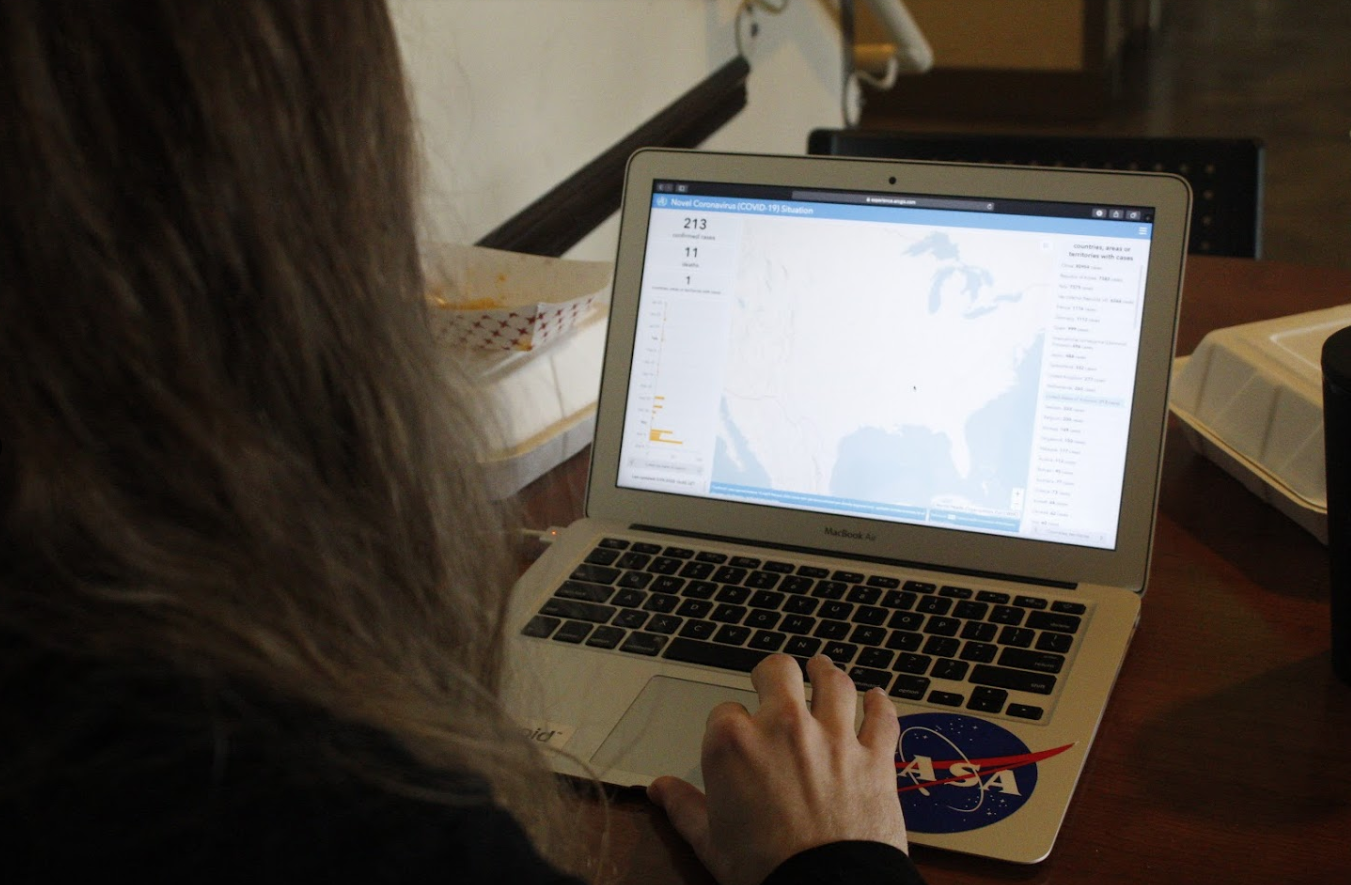As the coronavirus is starting to be detected in the U.S. it has left many wondering what impact it will have. As of Saturday, Mar. 7, there have been no cases of the coronavirus on campus. According to the CDC, 13 states have had cases reported. There have been 10 deaths in the U.S. and 99 cases in all. Most cases have been in California, with 36, and the state of Washington with 39. The other 11 states have one to five cases. These states are Oregon, Arizona, Illinois, Wisconsin, Georgia, Florida, North Carolina. New Hampshire, New York, Rhode Island and Massachusetts. These statistics are as of Mar. 5.
The coronavirus is, according to the Centers for Disease Control and Prevention website, a “large family of viruses that are common in people and many different species of animals, including camels, cattle, cats, and bats.” This particular version of the virus, COVID-19 is new and there is still uncertainty about how exactly it spreads. The common cold also falls under this family of viruses. According to the CDC, the virus came to the U.S.through travelers coming back from Wuhan, China.
The virus is being ranked into four levels based on severity. Level four is the most serious. Level three is where one is advised to avoid nonessential travel. Some countries in the level three category are China, Iran, Italy and South Korea. Level two is where people should “practice enhanced precautions,” the CDC says. Japan is in level two. The U.S. is currently ranked at level one. This means that our country is under watch and to “practice usual precautions,” the CDC advises.
Common symptoms to look for are fever, cough and shortness of breath. The CDC says these symptoms can appear two to fourteen days after exposure. If one has the symptoms, they should call local health authorities. Make sure to call first before going in so it does not infect anyone else.
Jackie Concodora, director of Health and Counseling Services, said, “Call the doctor’s office if at home, call health and counseling [if you] have the symptoms” on campus.
If one test is positive, they will be quarantined. Concodora explained that quarantine is, “isolating in your room, don’t hang out, restrict how much you are interacting with others.”
To prevent herself from getting the virus, Sandra Reyes, a junior English major, said she is keeping herself healthy by using more hand sanitizer, washing her hands more and trying not to share water bottles and food with people.
A good way to prevent this disease is to wash your hands for 20 seconds. For hand sanitizer to be effective, it should at least have 60% rubbing alcohol.
Kristen McMillian, a senior math major, said she is keeping a social distance and washing her hands frequently. The South Carolina Department of Health and Environmental Control website also recommends people “avoid touching eyes, nose, or mouth with unwashed hands,” “stay home while you are sick” and “cover mouth/nose with a tissue or sleeve when coughing or sneezing.”
While students are trying to prevent themselves from getting sick, the Winthrop health services office is trying to figure out what to do if the coronavirus does make its way to campus.
Concodora said, “we are trying to plan.” She also said that classes will likely be canceled if there is an outbreak on campus. For now, she warns students to check where they are traveling to for spring break. If they are going out of the country to somewhere at level three, they might not be able to get in.
Photo: Tate Walden/ The Johnsonian
For more information on travel regulations with this virus go to https://www.cdc.gov/coronavirus/2019-ncov/travelers/index.html.
For more information on the coronavirus, in general, go to https://www.cdc.gov/coronavirus/2019-ncov/index.html.




